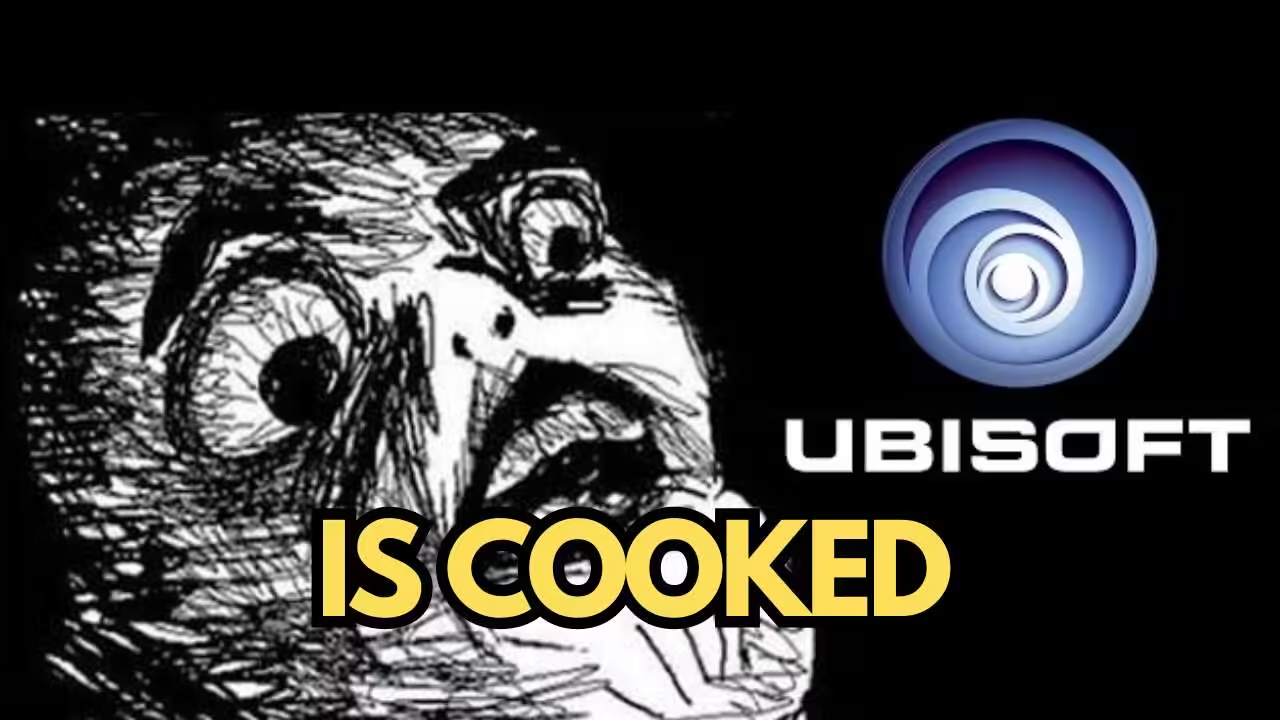Ubisoft, once a big name that brought open-world games to shine and has now become the centre of shithousery, has been facing mounting criticism from both gamers and the development community itself. Allegations have surfaced that suggest the company dismisses genuine criticism as “toxic gamer talk” and that its diversity, equity, and inclusion (DEI) policies have inadvertently contributed to a loss of technical expertise and creativity. This article delves deep into the claims made by developers, shedding light on Ubisoft’s internal challenges and how they may be impacting the company’s overall success.
Ignoring Player Feedback: A Culture of Dismissal
According to developers who spoke with YouTuber Legendary Drops, Ubisoft has cultivated a culture that is resistant to criticism, often labeling legitimate feedback as “toxic gamer talk.” One developer, when asked about how Ubisoft deals with criticism of its repetitive game design, agenda-driven content, and predictable storytelling, revealed that “at a high level, they rarely talk about it.” On a project level, the criticism is merely brushed off. This resistance to feedback hampers the growth and evolution of Ubisoft’s games.
The issue of “toxic positivity” was also highlighted, with the developer referencing well-known content creator Asmongold, who previously pointed out that Ubisoft’s insistence on a positive narrative prevents meaningful improvement. By not addressing flaws and ignoring constructive criticism, Ubisoft risks alienating a significant portion of its audience, especially those who have been vocal about wanting change.
Japanese Gamers and Assassin’s Creed Shadows: An Ignored Critique
Ubisoft’s reluctance to engage with player feedback extends beyond Western audiences. Japanese gamers also shared their criticisms regarding “Assassin’s Creed Shadows,” yet Ubisoft reportedly issued directives to its developers not to discuss these concerns publicly. The developer noted that the criticism “hasn’t been talked about” within Ubisoft, and that the company prefers to avoid addressing negative feedback altogether. This unwillingness to engage with feedback from diverse player bases limits Ubisoft’s ability to adapt and meet the evolving expectations of its global audience.
This is not an isolated occurrence within the gaming industry. Ubisoft’s behavior mirrors that of other companies, such as Firewalk Studios, which also opted for silence in the face of backlash regarding their game, “Concord.” It was only after significant criticism that Firewalk Studios addressed the issue, albeit in a delayed and seemingly dismissive manner. The hesitation to engage with the gaming community may be a strategy employed by several developers, but it often comes at the cost of alienating their core players.
Impact of DEI Policies on Talent and Creativity
Another major criticism coming from Ubisoft developers pertains to the company’s DEI policies. While promoting diversity and inclusion is an important goal, the way these policies have been implemented at Ubisoft has had unintended consequences. According to the developers, the initiatives have introduced a level of caution that has stifled creativity and led to a loss of technical expertise.
Developers are now finding themselves in meetings with Human Resources over trivial matters, such as “not adding a smiley in a message or adding an exclamation point.” This heightened sensitivity has reportedly created a work environment where employees feel restricted and unable to express themselves freely. Furthermore, the aftermath of the MeToo movement brought significant changes to Ubisoft’s leadership, with several managers either being let go or leaving of their own accord. This, in turn, shifted the company’s editorial direction from a “boys’ club” atmosphere to one focused on producing “safe content.”
The developer provided an example of the impact of this shift, mentioning Ubisoft’s Star Wars project. Instead of creating bold, engaging characters like those in “Baldur’s Gate” or “Uncharted,” the focus shifted to “plain characters.” Moreover, attempts to depict a true criminal underworld, complete with cruelty and drama, were reportedly shut down by Disney, resulting in a sanitized and less immersive experience.
The Consequences of Mismanagement and Talent Loss
A concerning pattern that has emerged at Ubisoft is the turnover of experienced developers and their replacement with less experienced staff. This practice, according to the developers who spoke to Legendary Drops, has resulted in a decline in the quality of Ubisoft’s games. Senior engineers with a wealth of knowledge are being pushed out, while junior developers are promoted to senior roles after just a few years of experience, often having worked on only one engine.
The results of this talent drain are becoming evident, with more bugs appearing in Ubisoft’s games and a noticeable drop in the overall quality. Passionate, dedicated developers are leaving, while those who remain seem to be “going through the motions.” This decline in passion and expertise is not just impacting the technical aspects of Ubisoft’s games but also their creative design.
One developer shared an example, stating that designers working on first-person shooter (FPS) mechanics at Ubisoft have never played an FPS themselves. Similarly, engineers building game mechanics do not understand how those mechanics are supposed to feel, which leads to a disjointed and lackluster player experience.
Another significant issue brought to light is the disconnect between Ubisoft’s management and its developers. When Legendary Drops asked a developer about Ubisoft’s declining sales, the response was telling. Ubisoft’s leadership does not focus on declining sales, instead emphasizing that they are meeting their financial objectives, mainly through casual player sales rather than the dedicated gaming community. This dismissive attitude toward the concerns of passionate players only serves to widen the gap between Ubisoft and its core audience.
Moreover, the number of management layers at Ubisoft has reportedly increased over the years to a “ridiculous amount,” further complicating communication between the higher-ups and development teams. Messages from HQ are often described as “corpo bulls**t” that provide little to no practical value for the developers. This bureaucratic bloat has hindered effective communication and contributed to the growing discontent among employees.

